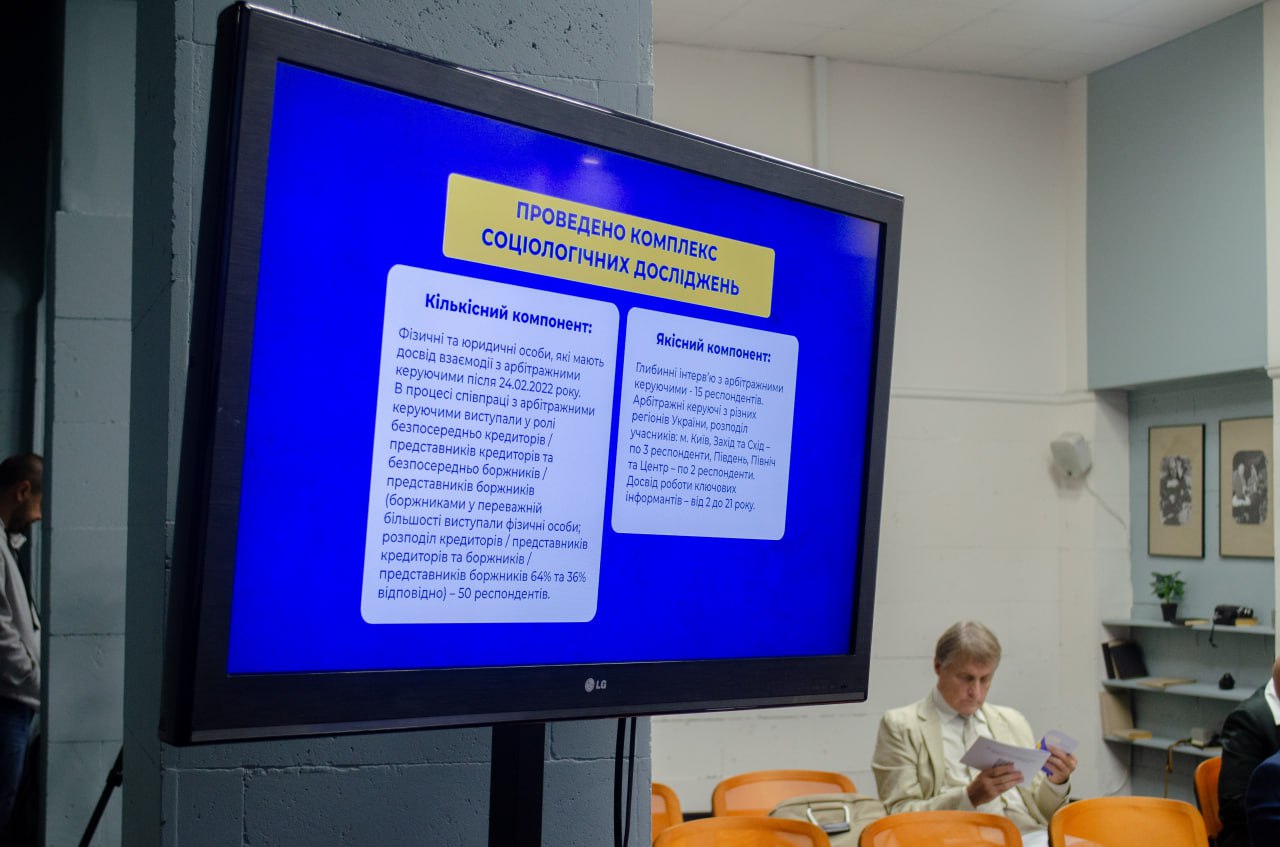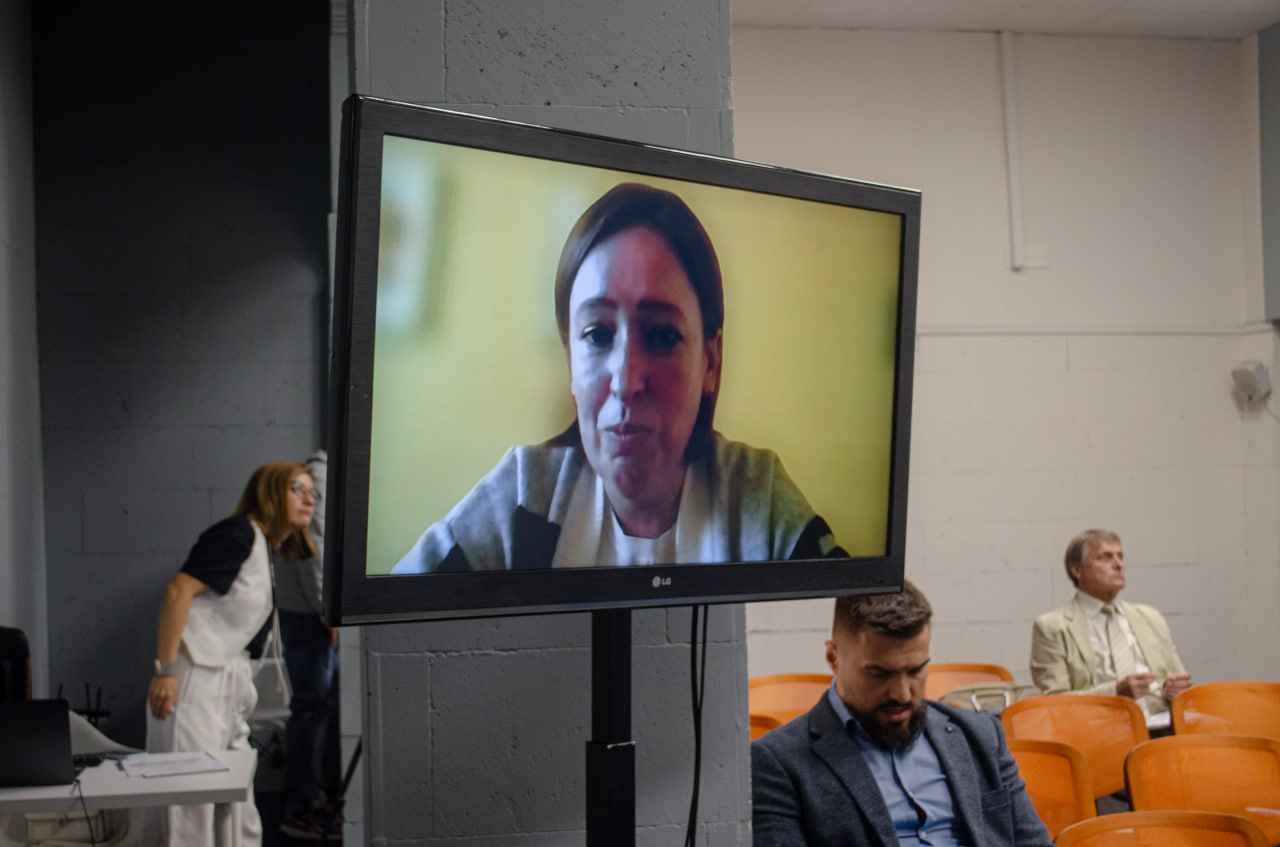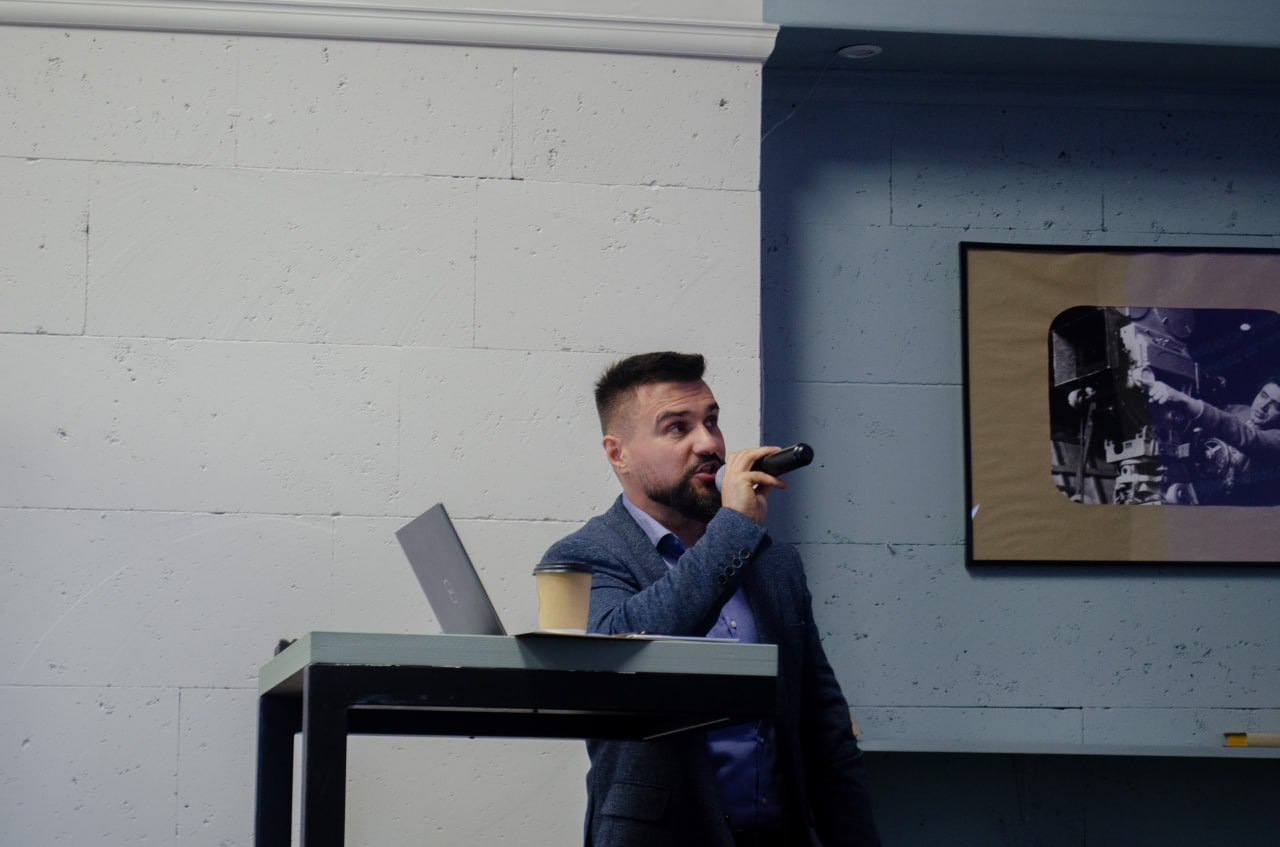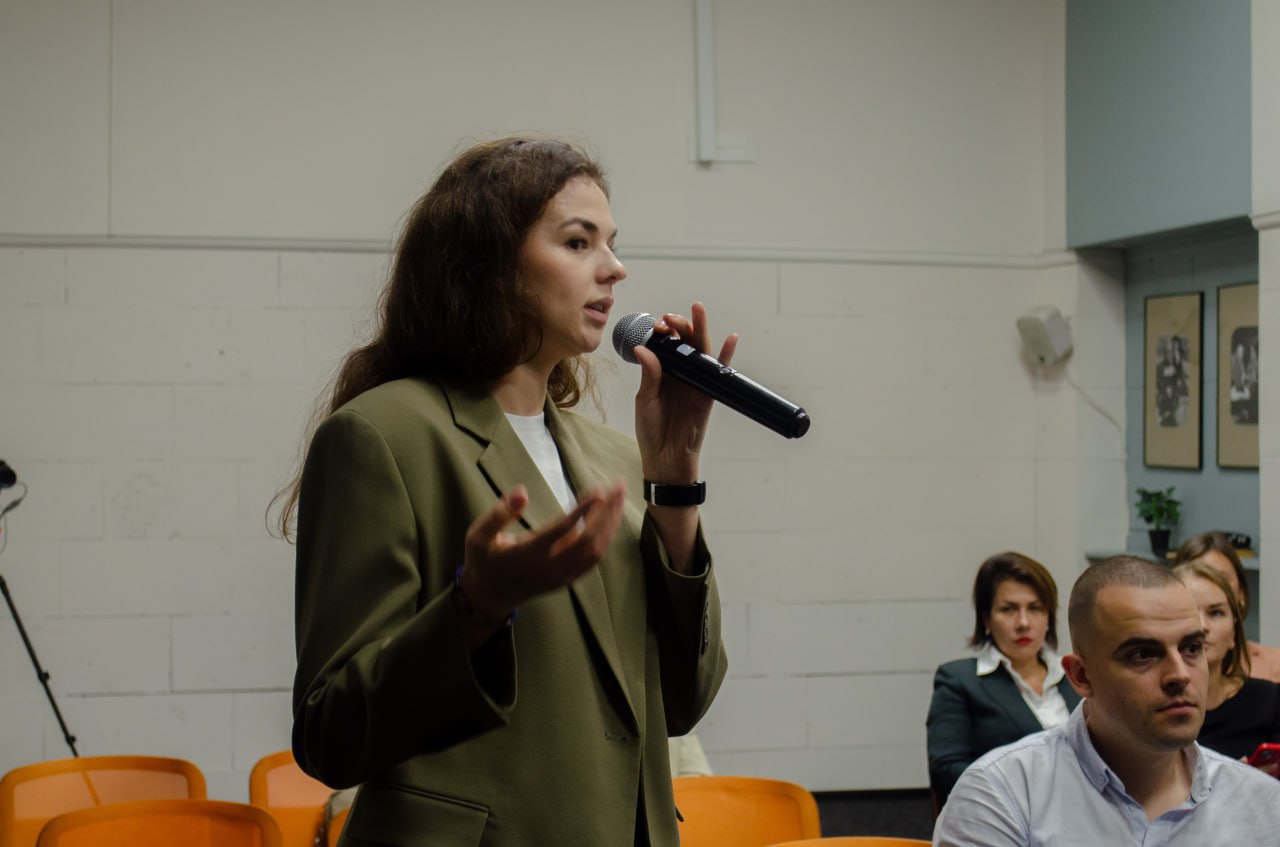A Sociological Study of the Insolvency System Was Presented to the Large Audience

On October 2, the results of a sociological study of the insolvency system in Ukraine, conducted with the support of the EU Project Pravo-Justice, were presented to the large audience. The study is part of a complex sociological survey which covers the study of problems and key challenges in four areas: enforcement of court decisions, notary, forensics, and insolvency.
“The questions within the sociological study covered the activities of bankruptcy trustees (BTs), in the first place. We wanted to have their opinion on how Ukrainian insolvency system had changed since the introduction of the new Code of Bankruptcy Procedures; what problematic issues needed to be eliminated and how. The impact of a full-scale war on the activities of BTs and bankruptcy procedures has also been in the focus of the sociological study,” said Iryna Zharonkina, Property Rights and Enforcement Component Lead, EU Project Pravo-Justice, in her welcome speech.

When presenting the results of the research, Oleksandr Shulha, Doctor of Social Sciences, spoke about the methodology of studying the insolvency system, which included in-depth interviewing of BTs; surveys of individuals and legal entities who had experienced interaction with BTs after February 24, 2022.
Thus, the research showed that most BTs combined their activities with the duties of an attorney or a lawyer in order to receive regular income. There has been a trend of increase in the number of clients of BTs as a result of the introduction of the individual insolvency procedure. The researchers stated there were complaints on the automated case allocation system.
“In practice, it looks like one BT has one case while his colleague has 20 cases. Therefore, key informants spoke in favor of giving creditors the opportunity to independently choose and make submissions regarding the appointment/approval of a BT,” said Oleksandr Shulha.

Some key problems faced by BTs in their professional activities include the following: possibility of removing a BT by the creditors’ committee without explaining the reasons; improper interaction regarding the provision of information by state bodies/banks, law enforcement agencies, state enforcement officers; difficulties regarding the payment of remuneration and reimbursement of other related costs; high taxes for BTs; insufficient level of digitization; lack of access to certain registers; lack of full integration of cases and registers; wrong approach to deciding on the insolvency of legal entities; and the lack of control of enterprises by state bodies. BTs also complained about a significant number of monthly reports; duplication of paper and electronic document flow; improper operation of reporting programs; frequent changes of regulations due to court practice; alongside inefficiency of the court system as a whole regarding the consideration of bankruptcy cases, and lack of full-fledged individual insolvency mechanism
When responding to the questions about the impact of a full-scale war on their professional activity, BTs noted that, in general, their workload and number of cases had mostly not changed after February 24, 2022. At the same time, the number of cases decreased and handling them has become more complicated in the eastern and southern regions of Ukraine, which have suffered the most as a result of Russia’s full-scale invasion of Ukraine.
As part of the sociological research, BTs also assessed the level of implementation of mediation in the bankruptcy procedure. They noted that the mediation procedure was effective and quite appropriate for restoring solvency; however, there stated some obstacles to the application of the procedure. In particular, it is about the mentality: bankruptcy procedures in Ukraine are mostly aimed at the liquidation of an undertaking, rather than restoring its solvency. The informants also stated there were problems with the application of another promising and effective procedure, which is the sanation (financial rehabilitation). “The application of sanation in Ukraine is limited due to the complexity of the requirements for debtors and difficulties in finding investors”, relayed Oleksandr Shulha the BT’s opinion.

Most creditors and debtors interviewed within the framework of the sociological study highly assessed the work of BTs, noting their high professionalism; completeness of provided information on a case; sufficient experience; honesty; accessibility; best result-oriented approach; high efficiency; absence of corruption; and prompt resolution of various issues. 72% of respondents believe that there is a sufficient number of BTs in Ukraine. 56% of respondents believe that the cost of work performed by BTs corresponds to its quality and scope; 88% said that they fully understood or rather understood the amount of payment. 62% of respondents have heard of corruption among BTs; 34% have encountered such situations themselves.
As to the independence of BTs: 44% of BTs’ community representatives consider themselves completely independent in their activities; 37% – rather independent. The sociological study has demonstrated great demand among debtors and creditors in bankruptcy procedures for digitization of processes in the field of insolvency.
It should be noted that the study was conducted from May 19 till August 4, 2023 in the entire territory of Ukraine, except for the temporarily occupied territories of Donetsk, Luhansk, Zaporizhzhia, Kherson regions, and Crimea.
The video record of the presentation of the Report.